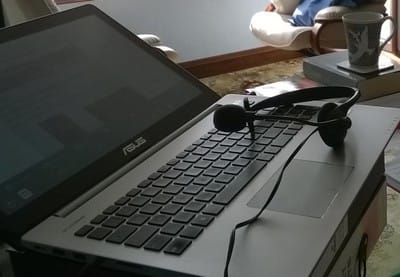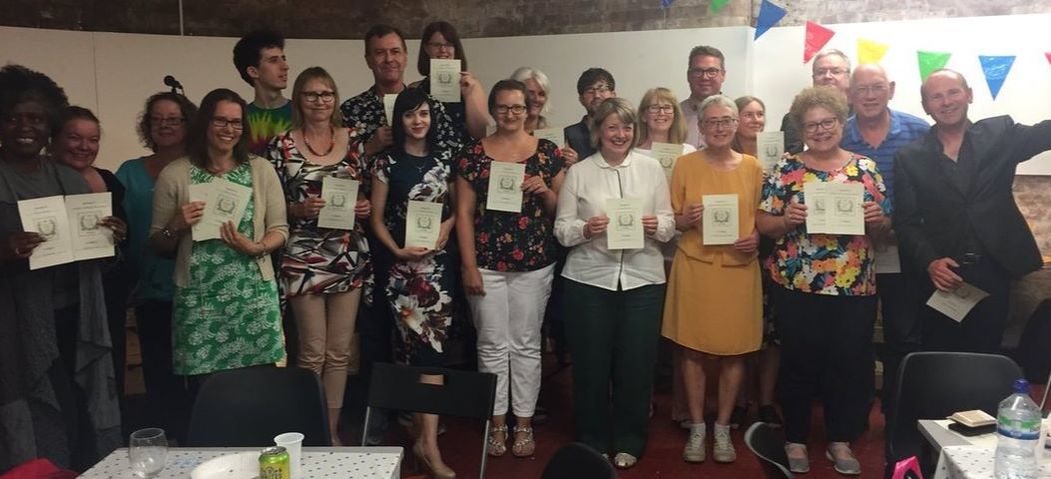| Imagine a virus has attacked your vocal chords, when your livelihood – not to mention your sanity – depends on clear communication. You can create sounds, but they are incomprehensible to others – a jumbled babble. Then, one day, as you jabber in frustration while preparing your children’s tea, your toddler’s voice rings out, perfectly articulating what you were trying to say. |
But there’s a problem. Like a toddler, voice-recognition software does not follow the logic of the adult human. All too often it misrepresents us, mangling our words in the most unexpected ways. It converts positives to negatives, omits key words or throws in a couple of extras I’m shocked to find it knows. It gabbles strings of nonsense or, when deadlines threaten, crosses its toddler arms and purses its lips and refuses to utter a word.
And although we can train the software to adapt to our idiosyncratic inflections (with different profiles available for Australian, British, Indian and two types of US accents), there’s often something lost in translation from sound to font. In the fifteen years I’ve used voice-activated software, it’s never adjusted to my Cumbrian vowels. So when I say moor it serves up more or mower, except on those occasions, like now, when it spells it correctly to make me out a liar. Even allowing for context, it confuses homophones, such that I almost let a character on a country walk mount a style. It’s also surprisingly prudish, balking at expletives like folk or even the inoffensive plastic. It prints that when I want but, prefers and to Anne (especially irritating given my name) and are to a (and, despite training, accuracy is best at the level of the sentence and somewhat hit and miss for words of a single syllable), and it loves to keep me on my toes by tossing out the wrong version of two. It’s also unaware that the colon is an organ of the body as well as a punctuation mark, which might account for why it likes to trick my characters into eating desert instead of dessert. I can easily forget it’s just a piece of software with no inherent motivation when it behaves as if it’s having a laugh at my expense.
| Like the young child who takes exception to certain toys and playmates, speech-recognition software is more compatible with some computer programs than others. It’s generally effective with Microsoft Office, but Scrivener users might be disappointed at the difficulty of editing by voice. Early adopters of new operating systems should also be wary. I experienced several months of frustrating back and forth with the help desk before the software engineers produced the upgrade to enable Dragon NaturallySpeaking to communicate with Windows 8. |
Occasionally, like a psychedelic editor, throwing up the wrong word takes my writing in an intriguing new direction, although I don’t think I was doing author Johanna Lane any favours when I repeatedly referred to her poignant literary novel Black Lake as Black Lace. While the odd wag has suggested I write an entire book from its uncorrected output, I’m too fond of my own ideas to give it free rein. It might have suited Ernest Hemingway and Dylan Thomas to write drunk, but I prefer to keep my head clear.
If all else fails, as with the peculiar logic of a toddler, voice-activated software can raise a laugh. If there’s ever a prize for spoof poetry, a random sample of my recent toddlerisms should stand me in good stead:
Buying the latter’s first Fraser (buying the lad his first razor)
dispels the same (despair was a sin)
his Kenneth patients in perception (his ken of patience and perception)
the lawyers comes the words (when the worst comes to the worst)
how many literary crisis (how many literary prizes)
you’re winning (young women)
like sinners to (like singers do)
an eternity of society (an alternative society).
A version of this post was published in The Author, Winter 2017.
| Feeling a little sluggish after a couple of intensive writing days, I needed a toddlerish response to the latest flash fiction challenge from Charli Mills. The prompt – a yellow tent – has taken me clothes shopping, by way of an update on last week’s post on Celebrating the small successes. |
I did indeed come home with a prize from the award night I mentioned – for my debut novel, Sugar and Snails – as did many others, as you can see from the photo below. I’m the one in a yellow dress looking gormless.
“You don’t have it in a different colour?” Or a different shape? It could be fancy dress. Marvellous! they’d say. You’ve come as a tent.
“Not at this price,” says the assistant. “But yellow’s definitely your colour.” How does she know? Because of my sunny disposition or because I’m a coward? Or because this frock is taking up space she needs for the winter stock.
“I’ll take it.” If only to hang in my wardrobe along with several other outfits I haven’t the courage to wear. “On second thoughts … Snap off the sales tag! I’m wearing it home.”

























 RSS Feed
RSS Feed





















